Being the daughters of narcissistic mothers can be severely damaging. Narcissistic mothers feel as if they are entitled to control their daughters, and the relationship between narcissistic moms and daughters is toxic, to say the least/.
So, what are the consequences of being the daughter of a narcissistic mother? How do adult daughters of narcissistic mothers navigate through life?
Our mother is our first love. She’s our introduction to life and to ourselves. She’s our lifeline to security. We initially learn about ourselves and our world through interactions with her.
We naturally long for her physical and emotional sustenance, her touch, her smile, and her protection. Her empathetic reflection of our feelings, wants, and needs inform us who we are and that we have value.
A narcissistic mother who cannot empathize damages her children’s healthy psychological development. Like Narcissus in the Greek myth, she sees only a reflection of herself. There is no boundary of separateness between her and her children, whom she cannot see as unique individuals worthy of love.
Symptoms of narcissism that make up narcissistic personality disorder (NPD) vary in severity, but they inevitably compromise a narcissist’s ability to parent.
The following are some of the characteristics and consequences of having a narcissistic mother. Notice that they unwittingly get repeated in adult abusive relationships, including relationships with narcissists, because they’re familiar – it feels like family.
Related: Surviving A Mom-ster: Trials And Tribulations Of Daughters Of Elderly Narcissistic Mothers
What Is It Like Being The Daughters Of Narcissistic Mothers?
1. Lack of Boundaries
Some of the effects on daughters are different than on sons because girls usually spend more time with their mother and look to her as a role model. Due to a lack of boundaries, narcissistic mothers tend to see their daughters both as threats and as annexed to their own egos.
Through direction and criticism, they try to shape their daughter into a version of themselves or their idealized self.
At the same time, they project onto their daughter not only unwanted and denied aspects of themselves, such as self-centeredness, obstinance, selfishness, and coldness, but also disliked traits of their own mothers.
They may prefer their son, although they can harm him in other ways, such as through emotional incest.
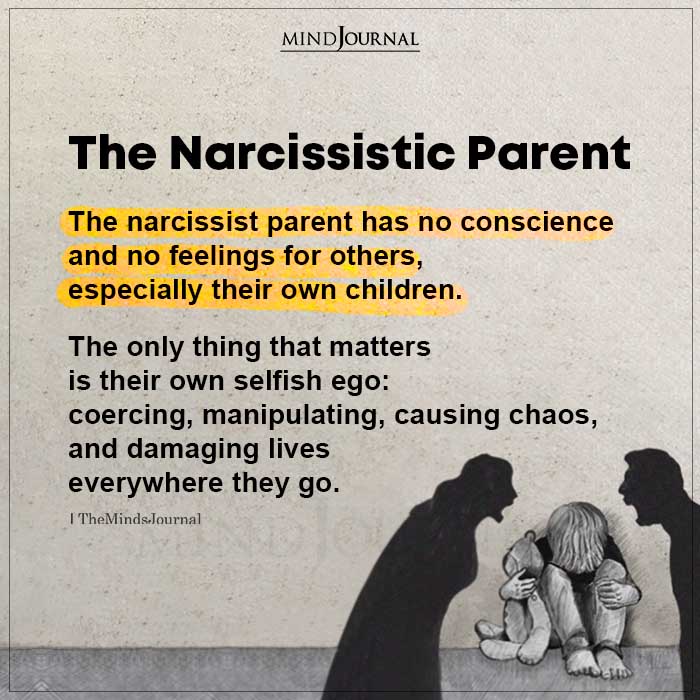
2. Emotional Unavailability
Emotional comfort and closeness that normal maternal tenderness and caring providers are absent. Narcissistic mothers may tend to their daughter’s physical needs, but leave her emotionally bereft.
The daughter may not realize what’s lacking but longs for warmth and understanding from her mother that she may have experienced with friends or relatives or witnessed in other mother-daughter relationships.
She yearns for an elusive connection, felt fleetingly or never. She doesn’t learn to identify and value her emotional needs, nor know how to meet them.
What remains is emptiness and/or anxiety, a sense that something is missing, and an inability to nurture and comfort herself. She may look to fill it in other relationships, but often the pattern of emotional unavailability is repeated.
3. Narcissistic abuse
Narcissistic abuse, including repeated shaming and control, undermine the developing identity of a young girl, creating insecurity and low self-esteem. She cannot trust her own feelings and impulses and concludes that it’s her fault that her mother is displeased with her.
She’s unaware that her mother will never be satisfied. In severe cases of emotional or physical abuse or neglect, a daughter may feel she has no right to exist, is a burden to her mother, and should never have been born.
If not also abusive, often husbands of narcissistic women are passive and don’t protect their daughters from maternal abuse.
Some mothers lie and hide their abuse. A daughter doesn’t learn to protect and stand up for herself. She may feel defenseless or not even recognize mistreatment later in adult abusive relationships.
Related: Are You Dealing With A Narcissistic Mother? 10 Narcissistic Mother Symptoms You Should Look Out For
4. Toxic shame
She rarely, if ever, feels accepted for just being herself. She must choose between sacrificing herself and losing her mother’s love–a pattern of self-denial and accommodation is replayed as codependency in adult relationships. Her real self is rejected, first by her mother, and then by herself.
The consequence is internalized, toxic shame, based on the belief that her real self is unlovable. How could she be worthy of love when her own mother didn’t love and accept her?
Children are supposed to love their mothers and vice versa! A daughter’s shame is compounded by anger or hatred toward her mother that she doesn’t understand.
She believes it’s further evidence of her badness, and that all her mother’s criticisms must be true. Never feeling good enough her life is one of continual striving and lack of fulfillment. Since love must be earned, her adult relationships may repeat a cycle of abandonment.
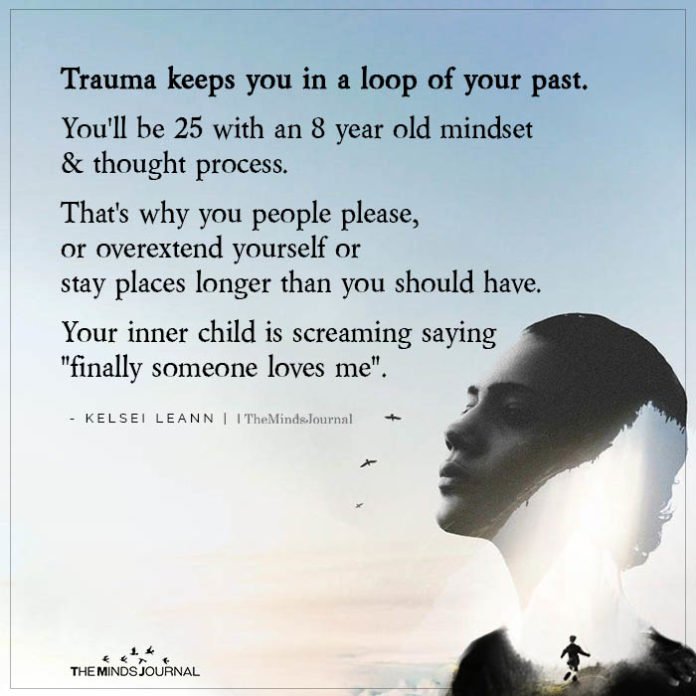
5. Control
People with NPD are myopic. The world revolves around them. They control and manipulate their children’s needs, feelings, and choices when they can, and take it as a personal affront deserving of punishment when they can’t.
Parenting is often, “My way or the highway.” Self-involvement leads some narcissistic mothers to focus only on themselves or their sons, and neglect or deprive their daughters.
Other mothers want their daughters to look and be their best “according to them,” but cripple their daughters in the process through criticism and control. Such mothers attempt to live through their daughters, who they see as an extension of themselves.
They want her to dress and behave just as they do, and to choose boyfriends, hobbies, and work that they would choose. “For her own good,” they might forbid or criticize whatever their daughter likes or wants, undermine her ability to think for herself, to know what she wants, to choose for herself, and to pursue it.
Their attention to their daughter is accompanied by their envy and expectations of gratitude and compliance. In adult relationships, these daughters often are in controlling relationships or get into unnecessary power struggles.
6. Competition
Believing she is “the fairest one of all” or fearing that she’s not, motivates narcissistic mothers to not only criticize their daughters but to compete with their daughters for their husband’s and son’s love. Such mothers may deny or not protect their daughters if they abuse them.
They may restrict or disparage her boyfriends because they’re “not good enough,” yet nevertheless compete for their attention and flirt with them. To be in control and number one in their daughter’s life, they may invade their daughter’s privacy and undermine her relationships with friends and other relatives.
Related: The Good Daughter Syndrome: 7 Signs of Narcissistic Mother Empath Daughter Dynamics
Recovery
Recovery from the trauma of growing up with feelings of rejection and shame takes time and effort. (See Conquering Shame and Codependency.) Ultimately, it means recovery from codependency. It starts with identifying and understanding that the shaming messages and beliefs transmitted from mother to daughter are untrue.
Replacing the internalized, negative, maternal voice – the internal critic – with self-nurturing is an important step. (See 10 Steps to Self-Esteem: The Ultimate Guide to Stop Self-Criticism and webinar How to Raise Your Self-Esteem.) Recovery entails both healing the past and learning new skills to overcome codependency. (See Codependency for Dummies.)
To learn how to deal with a narcissist in your life, whether your partner or parent, follow the steps in Dealing with a Narcissist: 8 Steps to Raise Self-Esteem and Set Boundaries with Difficult People.
Read about “Sons of Narcissistic Mothers” and “Sons of Narcissistic Fathers.”
©Darlene Lancer 2017
Written By Darlene Lancer JD LMFT Originally Appeared On Codependency

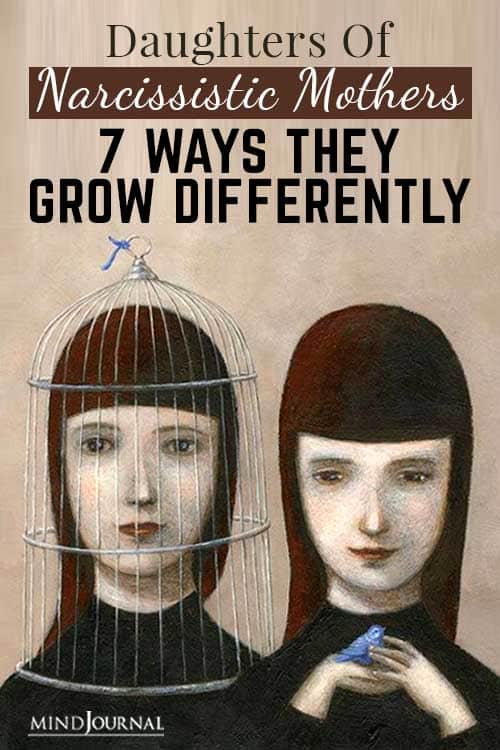

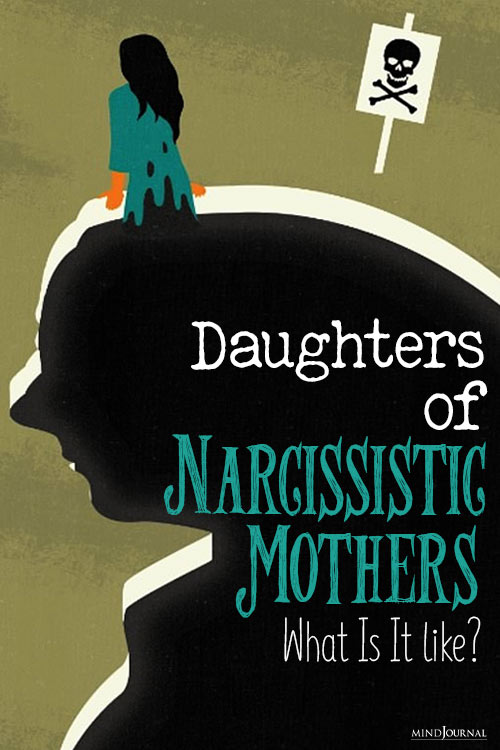


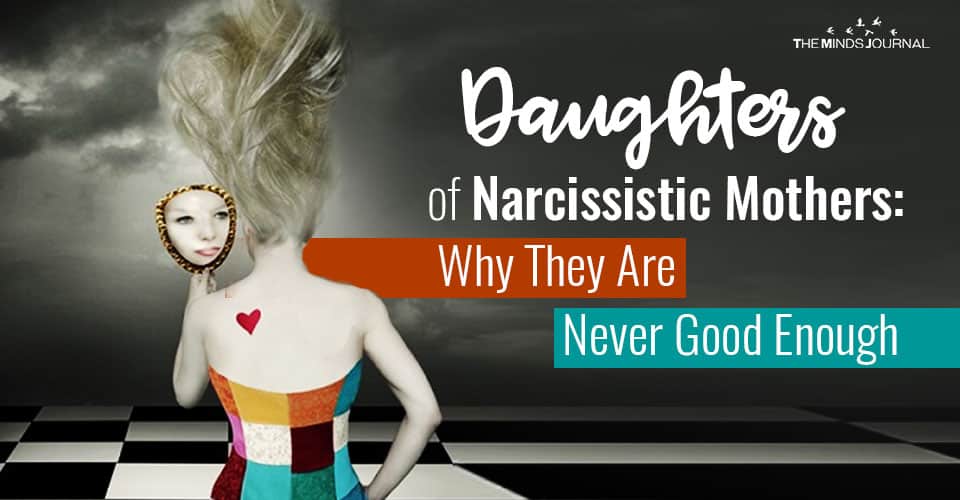







Leave a Reply